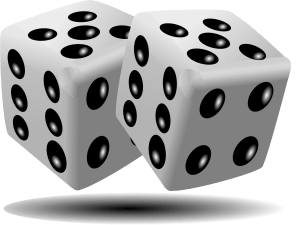
Featured Blog | This community-written post highlights the best of what the game industry has to offer. Read more like it on the Game Developer Blogs or learn how to Submit Your Own Blog Post
Are All Gamers Musicians? Aleatoricism and the Everygamer
Should game composers think of all gamers as musical performers? Fascinating research suggests that the musical scores of all games can be regarded as "chance music" governed by both random factors and the whims of the "gamer musicians."


I recently read a research paper about game music that I came across via Google Scholar (always an excellent resource if you're a game music composer looking for food for thought). The paper was entitled "Game Scoring: Towards a Broader Theory," written by Mack Enns of the University of Western Ontario towards his Master of Arts degree. While the paper's intention is to show how composing music for gaming is "distinct from other types of scoring," the author repeatedly asserts that game music "remains always inherently 'aleatoric.'"
This was the first I'd heard anyone put forward a theory such as this, and it's definitely a bold statement. Is all game music intrinsically aleatoric? In my book, A Composer's Guide to Game Music, I discuss aleatoricism as "music in which some elements are left to chance." (Chapter 2, pg. 30). This means that some components of the music are left to the metaphorical roll of the dice. Mack Enns further applies this concept to games by asserting that all game music "involves both chance operations and a degree of improvisation... the "performer" of a game score is not a musical performer but a "ludal" one, that is, a "gamer."
So, according to this, the gamer is essentially performing the music. Well, let's think about that a moment. The gamer does perform actions which trigger musical reactions, so one might imagine the gamer operating as a sort of "conductor" for the musical score, indirectly cueing the music to begin, or determining which musical segments will be triggered at any given time by virtue of gameplay choices. But a performer and a conductor aren't really the same thing... so the idea of the improvising "gamer" as the chance element in a game music composition may not hold up in all games. But does it hold up in some?
Just to take a look at what the improvising performer brings to aleatoric music, I'll first give you an example from one of the more famous aleatoric compositions by John Cage, after which we'll take a look at some top video game examples. In John Cage's "Living Room Music," a group of performers are instructed to use household objects as rhythmic instruments, but no instruction is given regarding the best objects to choose, or the desired tonal quality to be produced by the objects. That's left entirely to chance. Here are two performances of "Living Room Music." The first, performed by the MET Orchestra Percussionists, uses a combination of fingertips and glasses.
As a contrast, the second version, performed by Square Peg Round Hole, uses a collection of cardboard boxes (music begins at the 1 minute mark).
You can see that the choices of the performers have a dramatic impact on the sound of the resulting composition. Does a gamer have a similar awesome impact on the musical content of a game by virtue of the choices made during gameplay? That's a harder idea to mentally digest, but Mack Enns proposes that if we also include the game's sound effects as a part of the musical score, then we can more easily perceive the gamer as an aleatoric musical performer. "Game scoring," Enns writes, "includes a recognition, accommodation and, even, an orchestration of sound effects which ordinarily might also be considered “extramusical” to the untrained ear."
So, if we're willing to accept the game's sound effects as a part of its musical score, then the entire experience becomes an aleatoric performance... but that presupposes the idea that sound effects should be accepted as musical events. If we don't perceive the sound effects as musical, then are there still circumstances in which the gamer can be considered an aleatoric musical performer? It seems to me that the role of the gamer as a musician would depend on the nature of the game being played... and there are certainly games in which the player fills the role of the performer in a composition governed by chance. Let's take a look at a few popular video game examples.
Flow
In the game Flow, players become a small organism glowing in a watery universe. In this game, the sound effects are musical. When your organism eats a glowing mote in the water, a tone sounds. Progressing through the game, the tones create a musical latticework according to the player's choices, essentially weaving the fabric of the game's musical score as the gamer plays. This seems like a good example of an aleatoric score in which the sound effects could rightly be considered musical, and the player can be identified as an aleatoric performer.
Electroplankton
Electroplankton is the most overt example of a game that casts the player in the role of a musician. The game consists of an assortment of minigames that allow the player to participate in music creation through many clever graphical interfaces and procedures. For instance, in the "Beatnes" game, the player is introduced to the art of "Live Looping" by rhythmically tapping the screen to trigger sounds that thereafter loop repeatedly with the beat, allowing the player to create more complex repeating layers of sounds as the music progresses.
Rez
Rez is a rail shooter in which the player navigates a virtual environment within a computer network, destroying viruses and firewalls in order to rescue an artificial intelligence named Eden. There are no sound effects in Rez - every action of the player is punctuated with a musical tone or rhythmic effect that melds with the electronic soundtrack to create the overall musical score. When players "shoot," they're essentially playing the music.
Lumines
The gameplay of this popular puzzle game is less directly musical, but still has a very strong effect on the progress of the musical score. Players of Lumines manipulate falling blocks (in a manner vaguely reminiscent of Tetris). The music consists of looping segments, during which the overall composition seems to halt any forward progress and dwell on a short internal segment repeatedly until the player racks up enough points to trigger the music to move ahead. Because the player's actions influence the progress of the music rather than its content, it seems that this game casts the player in a role more similar to a conductor than a musician.
Flower
In the Flower video game, the player collects flower petals, which emit bell-like tones as they fly up into the air. These tones join with the game's musical score with a delicate, "wind-chime" effect. The player is able to sound these bells each time a new flower petal is collected, and these sounds serve to provide foreground interest for the music and a sense of shape and forward movement to the composition.
So, after reading Mack Enns' paper and considering his thesis, I think it's certainly reasonable to identify certain games as having soundtracks structured in such a way as to allow the player to become an aleatoric musical performer. I'm not sure I'd agree that all games are structured this way, and the idea of considering all sound effects as musical is a highly experimental concept. Nevertheless, it's interesting to consider! Let me know what you think in the comments!
 Winifred Phillips is an award-winning video game music composer whose most recent project is the triple-A first person shooter Homefront: The Revolution. Her other credits include five of the most famous and popular franchises in video gaming: Assassin’s Creed, LittleBigPlanet, Total War, God of War, and The Sims. She is the author of the award-winning bestseller A COMPOSER'S GUIDE TO GAME MUSIC, published by the Massachusetts Institute of Technology Press. As a VR game music expert, she writes frequently on the future of music in virtual reality video games.
Winifred Phillips is an award-winning video game music composer whose most recent project is the triple-A first person shooter Homefront: The Revolution. Her other credits include five of the most famous and popular franchises in video gaming: Assassin’s Creed, LittleBigPlanet, Total War, God of War, and The Sims. She is the author of the award-winning bestseller A COMPOSER'S GUIDE TO GAME MUSIC, published by the Massachusetts Institute of Technology Press. As a VR game music expert, she writes frequently on the future of music in virtual reality video games.
Follow her on Twitter @winphillips.
Read more about:
Featured BlogsAbout the Author(s)
You May Also Like







.jpeg?width=700&auto=webp&quality=80&disable=upscale)








